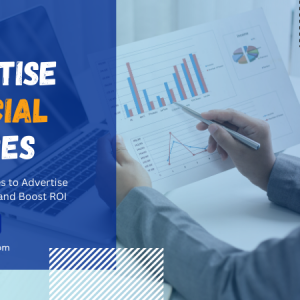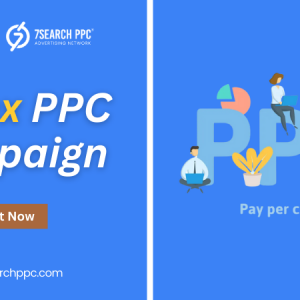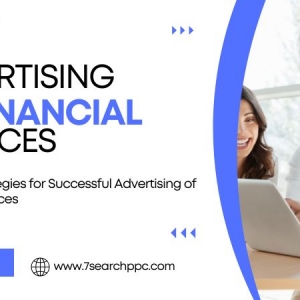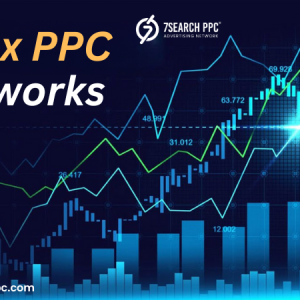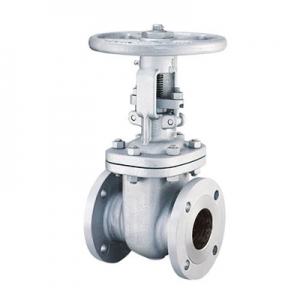If you type in and search for 'health insurance near me,' thousands of paid ads and organic results show up. Big insurance companies and local agencies fight for the top spot, wanting to make their mark with the searchers and potential customers.
However, insurance is not the most colorful topic out there. People usually keep away from insurance agencies unless they're actively looking to buy insurance. So, how can you, as an insurance agency or independent agent, reach the right audiences? PPC can be the answer.
If the first thing someone looking for insurance does is search, targeting them with ads right there makes sense. This realization has led advertisers to adopt PPC for insurance ads, making the insurance market extremely competitive with huge bids. Standing out from this crowd is tough but definitely not impossible. Let's explore how with this blog.

PPC for insurance ads: Is it even worth it?
Before you start making ads and signing up with ad networks, let's understand why PPC for insurance ads is worth the effort.
PPC or pay-per-click advertising allows you to carry a laser-targeted approach and direct ads to individuals who have actively shown interest in buying insurance. By paying for ads only when someone clicks on them, you can build or maintain your company's reputation with insurance advertising.
This is also an excellent opportunity for new insurance businesses and agents with low organic search engine rankings. You wouldn't have to wait months for search engines to index your website and display you at the top rank. You can start with a low budget, track campaigns in real-time to see what works, optimize, and slowly increase your budget.
So, PPC for insurance ads is definitely worth your efforts, but only when the right strategies are applied. Let's discover the top strategies and tips to maximize your PPC ROI.
9 Tips to Maximize Your PPC ROI
1) Make sense of what your audience wants
Insurance is an inherently personal topic. People come from different backgrounds with different motives in mind. Some take life insurance to secure the future of their family, while others do it for a retirement income. Understanding where your audience is coming from can help you better advertise to them.
Ask yourself questions like:
- What type of insurance does my audience want?
- What motivates people to buy insurance?
- What is their background? (age, income, location, medical and financial history)
- Have they had any problems with insurance previously?
- What factors lead them to make a decision?
Once you know about your audience, you can segment them into similar groups and strategize PPC campaigns for each separately.
2) Research for reliable keywords
Keywords are important if you wish to set highly targeted campaigns. They are what get your insurance planning ads clicked and increase your ROI in the long run.
Long tail keywords are the ones you can rely on the most. Most people looking to buy insurance often use descriptive phrases to search for them. Keywords like 'life insurance for kids under 13' indicate a higher purchase intent by concentrating your ads only to people looking for such insurance specifically.
Broad keywords carry a variety of search intents. Someone searching for 'health insurance' can either be a very warm audience looking to purchase now or plan for the far-off future. Moreover, with a majority of big insurance companies aiming for these keywords, they are also hard to bid for.
Negative keywords are phrases that you can refuse to show up for. So, if you're on a tight budget, you can use negative keywords to avoid spending on irrelevant traffic.
Once you identify keywords that work, the effectiveness of PPC for insurance ads will ultimately increase.
3) Ad creatives that stand out
Picture this. A video health insurance ad that takes you through an emotional journey with giggles on the side. Or an ad that simply showcases all the features of an insurance policy. Which one would you click on?
Insurance must be targeted and sold as something other than a dull topic. The best insurance advertising always stands out with its creativity, making an emotional appeal to the audience. It makes people laugh, cry, and relate. So, if you're making generic ads, you need to switch things up now.
Remember the audience research we did? It's time to bring it back to the surface and use it to create highly targeted ad copy and visuals. Your ad copy should be personalized for the audience, and visuals should be unique and represent your brand.
4) Tailor-make your landing pages
No one wants to click on an ad only to be directed to a mysterious page. They want what they came here for without having to navigate much. This is what makes customizing landing pages so important.
Your landing page should be straightforward and match the aesthetics of your ad. It should include creative and persuasive elements to prevent people from clicking away. So, if your ad promised a free insurance quote or a newsletter, it should direct users to a landing page that collects emails instead of somewhere else on the website.
5) Target the right place at the right time
According to Google data from 2019, mobile queries containing 'insurance near me' grew by 100%. This shows that people usually opt for insurance policies from insurers near them. Targeting the right place at the right place is more essential than ever to deliver the message.
Geotargeting uses a user's specific location to deliver ads to them. They create a virtual boundary within which they target ads to people that fit in other targeting criteria. It works especially well for insurance agent advertisements, allowing agents to connect conveniently with prospects.
For instance, an insurance agent working for a company in Florida can run ads within that location and connect with people actively searching to buy insurance. He can take his PPC for insurance ads up a level by running ads when the population is most active online.
6) Chase warm audiences with retargeting ads
How many times have you remembered a brand after seeing their ad just once? Chances are less, right?
Purchasing insurance is a complicated, long-term deal. Prospects won't pick the first insurer whose ad they saw. Especially not when they're being targeted with ads from various insurers. You need to start retargeting them to hold their attention and improve brand recall.
Retargeting works with an audience who has previously visited your website, roamed around, and is aware of your brand's existence. PPC for insurance ads increases your chances of winning this audience by retargeting your ads to them frequently.
7) Keep track of your KPIs
Even though just the mention of KPIs can give you a headache, they still are a vital part of PPC for insurance ads. KPIs (Key Performance Indicators) can be considered metrics that a business uses to measure the performance of a campaign.
The strategy that goes behind developing KPIs is pretty simple. Think of the goals you wish to achieve with your campaign and match them with your overall business goals. Make sure to keep them realistic and aligned with your company's internal process. Track them regularly and compare them with previous ones.
For example, if your overall business goal is to increase the number of insurance quotes you send out, the advertising KPI you would track can be the number of conversions.
8) A/B test to keep improving
A banner ad targeted to an audience group might outperform a video ad targeting the same group. This is why A/B testing is necessary to get a better sense of ad elements that work and those that don't. Sticking to ads that don't generate the results you expect will only waste money and other resources.
Instead of going by a 'feeling' and randomly putting ad elements together, you should plan out a strategy. Test out different variations of ad copy, visuals, extensions, audience targeting, and geolocations. This way you can figure out what works for your audience and cater better to them to increase your ROI.
9) Optimize your bidding
Did you know that ad positions matter when it comes to conversions? It has been observed that the ones in the first position right at the top often face plenty of accidental and irrelevant clicks. What makes this worse is that they are the most expensive bids when it comes to PPC for insurance ads. But this isn't the case when it concerns ads from specific searches.
Here, you need to find a balance in bidding that won't get you placed right at the top or at the bottom. Positions two and three work well to attract audiences for conversions.
As a rule of thumb, most advertisers bid lower for broad terms but higher for specific long-tail terms. This way, you aren't wasting your budget on any random clicks that won't even affect your ROI in the long run.
Conclusion
PPC for insurance ads is the real deal when done right. While it can get tricky at first, constantly testing to find the right strategies can help you maximize your ROI. An insurance company advertisement that is backed by days of strategizing is always set to prevail in the competitive market.
Business insurance advertising that begins with research should always follow up with analyzing and tracking. Remember to always focus on personalization and making an emotional appeal. An insurance advertising agency like 7Search PPC can directly connect you with website publishers and make sure your ads get the limelight they deserve.
Frequently Asked Questions
What ad formats can I access with PPC advertising?
Ans: PPC for insurance ads comes in many formats: text ads, banner ads, video ads, native ads, popunder ads, and in-page push ads. You can access all of them easily with ad networks like 7Search PPC.
How can I create better PPC for insurance ads?
Ans: Better insurance ads always utilize storytelling to convey a message that can make people relate on an emotional level.
What does the future of insurance advertising look like?
Ans: The future of insurance advertising is shifting its focus to a more localized form of targeting and advertising via video ads.
Why does a maximzied ROI matters?
Ans: Advertising ROI (Return on Investment) is an essential metric that verifies whether a campaign is as profitable as desired. It measures success over time and takes out the guesswork from future campaigns.
How can insurance companies differentiate themselves from others?
Ans: Insurance companies can differentiate themselves by highlighting their unique perks, such as expertise in a particular area, lower premiums, better customer service, etc.
References
Why Is Your Average CPC So High and how to fix it?
What Is The Best CPC Ad Network?
The Anatomy Of An Irresistible Display Ads
Retargeting Ads: Reach your Target Audience With PPC Ad campaign


